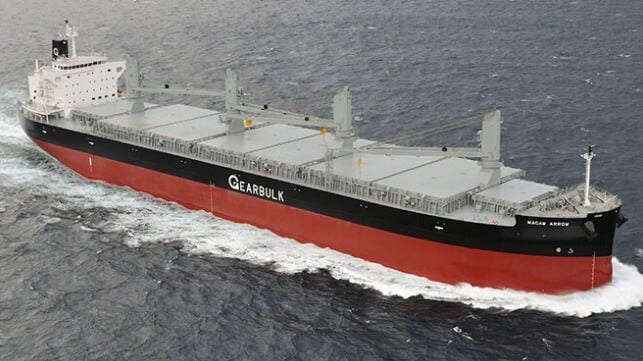MOL to Consolidate Dry Bulk Position by Taking Control of Gearbulk

Mitsui O.S.K. Lines will increase its ownership position in Norway’s Gearbulk Holdings as part of the Japanese company’s strategy to consolidate and expand its position in dry bulk shipping. MOL, which reports it is one of the world’s largest shipping companies with a fleet of over 870 vessels, says the transaction is part of its commitment to accelerate revenue growth.
Kristian Jebsen and his family through their holding company Halberton will sell an additional 23 percent stake in Gearbulk to MOL with the deal expected to be completed by January 2025. Gearbulk first has to complete some internal reorganizations consolidating its open-hatch business and a carve-out of other businesses. MOL will increase its position to a 72 percent stake and consolidate Gearbulk as a subsidiary while Jebsen will retain a 28 percent shareholding in Gearbulk.
“By adding Gearbulk's open-hatch segment business to MOL business, we will be able to offer a diverse range of transport services by a broad range of vessel types,” MOL writes explaining the transaction. The company has been an investor in Gearbulk since 1991.
Gearbulk started in 1968 and was one of the pioneers in open hatch gantry crane vessels. The group has built a leadership position in the segment reporting it has the world’s largest fleet of open hatch gantry crane and jib crane vessels. The group has about 65 open hatch and other specialized vessels with the fleet commercially operated by G2 Ocean, a joint venture 65 percent owned by Gearbulk and 35 percent by Grieg Maritime. G2 will continue to operate as before after MOL increases its position in Gearbulk.

that matters most
Get the latest maritime news delivered to your inbox daily.
Open hatch is a specialized segment of the dry bulk sector. The vessels are designed to transport unitized cargoes such as forest products, bale pulp, non-ferrous metals, aluminum ingots, and steel products. G2 Ocean also transports conventional bulk and project cargoes. The vessels are also designed so that the cargo can be loaded on top of the hatch or deck, allowing the transport of heavyweight and oversized cargo such as windmill components.
MOL reports that the consolidation of Gearbulk creates synergies such as enhancing the expansion of the group's business base by adding Gearbulk's worldwide network, creating new business opportunities, and boosting the efficiency of vessel allocation. The company also expects these synergies to significantly differentiate it from its competitors and strengthen its cost competitiveness and customer network.
